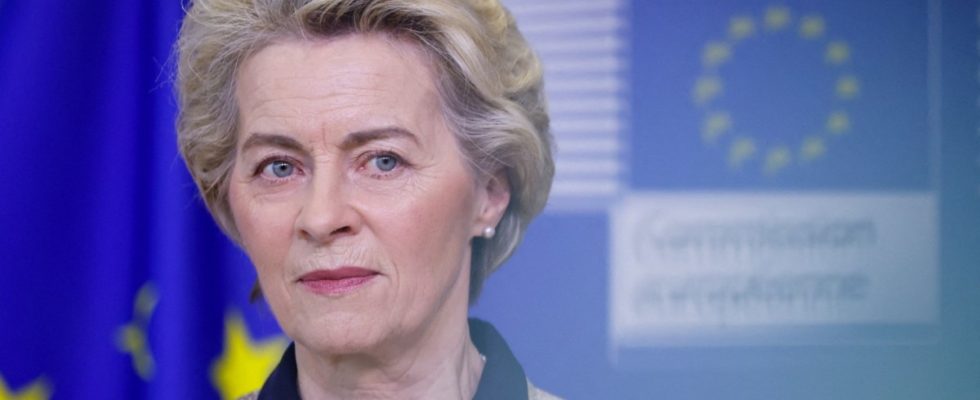Fears of a cold winter were great when EU Commission chief Ursula von der Leyen traveled to Strasbourg in September last year. There she spoke in the European Parliament, dressed in the national colors of Ukraine, gave her annual State of the EU speech, and tried to allay some of the people’s fears. Energy prices had been skyrocketing even before Russia’s invasion of Ukraine. And especially after the outbreak of war, when electricity and gas bills across Europe ruined vacation plans. “In times like this”, said von der Leyen“profits must be shared and redirected to those most in need.”
It was her answer in a debate that was already several months old at the time. Should energy companies be deprived of their excess profits in order to relieve the burden on citizens and companies? Those profits that they made without any involvement of their own, just because Putin turned off gas to Europe and prices on the electricity exchanges shot up? Yes, the commission found, and von der Leyen announced a “cap” on the income of companies that generate electricity cheaply and sell it at high prices. “These companies are making profits that even in their wildest dreams they never expected,” she said.
A corresponding legislative proposal, which the Commission presented a little later, would bring “140 billion euros for the member states in order to immediately cushion the emergency,” announced von der Leyen. The emergency regulation was ultimately in force from December 2022 until the end of June this year: all income above 180 euros per megawatt hour of electricity should be skimmed off.
The EU Commission plans to present a detailed report in the fall
A whopping 140 billion euros, that sounded very optimistic even back then. 14 months later it becomes clear: the number was probably born out of fantasy – at least it probably depended on it Worst case-Assumptions were made that ultimately failed to materialize. This emerges from the answer to a question from FDP MEP Moritz Körner to the Commission, which the SZ has received. At the time, it was assumed “that the measure would be applied at a time of very high electricity prices, but this ultimately did not happen as electricity prices fell significantly and remained stable during the application of the market revenue cap,” writes Energy Commissioner Kadri Simson .
In her answer, she avoids breaking down exactly which of the 27 EU countries reported which figures to Brussels. Instead, the commission will present a detailed report “in autumn 2023,” it is said. However, preliminary results show how little money the measure actually freed up: Bulgaria reported revenue of around 163 million euros in December 2022, and Lithuania reported that it had collected around ten million euros by March 9th. “Ursula von der Leyen remains the announcement world champion,” says Körner. “The loudly announced state interventions have failed to have the promised effect.”
German revenues have so far been in the three-digit million range
In June, before the special levy expired, the commission published an interim report. Accordingly, the member states in the Council only expected revenue of more than 50 billion euros. “However, even at the time of reporting it seemed unlikely that these assumptions would materialize,” the paper says. After wholesale prices for electricity had fallen again almost across the board, the “revenue cap” only worked in countries that had set it below 180 euros per megawatt hour.
One of these countries was Germany, where the most electricity is consumed in the EU, prices have risen extremely and high income could therefore be expected. The Federal Ministry of Economics has so far presented figures for the first accounting period from the beginning of December to the end of March. Accordingly, “the total reported excess proceeds to be recovered” amounted to approximately 417 million euros, writes the ministry. This does not contribute much to financing the electricity price brake, which, according to BMWK estimates, will have cost a total of around nine billion euros, less than forecast. Figures for the remainder of the period until the end of June should be available in November.
With a view to the upcoming winter, the fear of overwhelming energy costs and an acute shortage of gas is no longer great. The storage facilities are full, and the wholesale electricity prices in Germany in October were just under 88 euros per megawatt hour, even below the average for the pre-war year of 2021. This is far from excessive profits.

